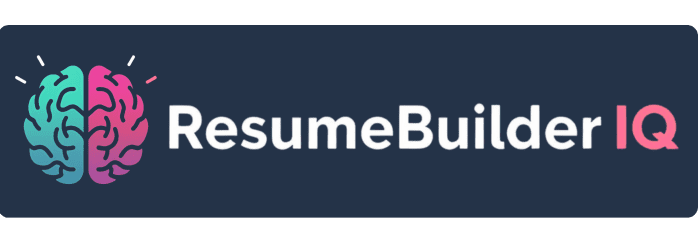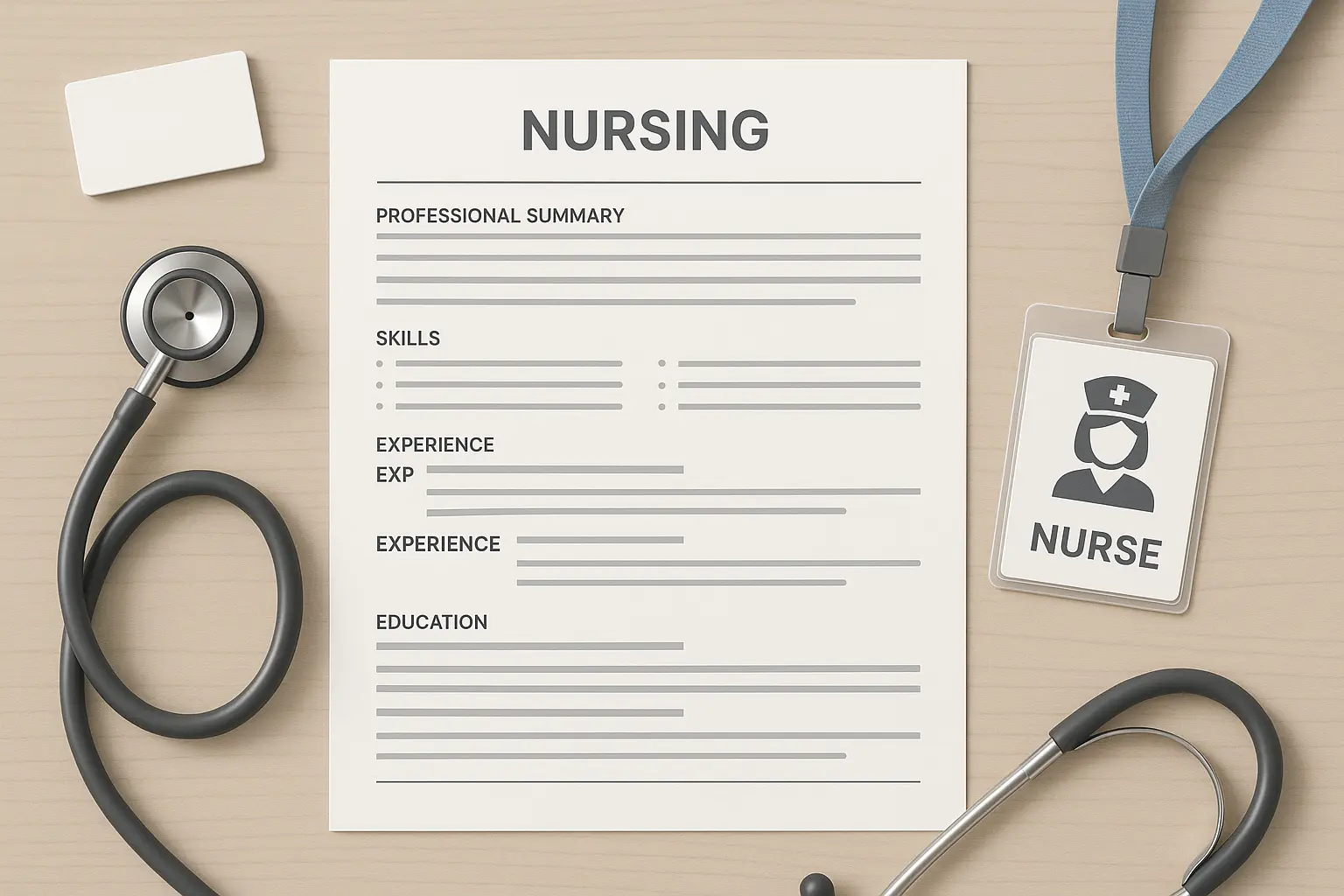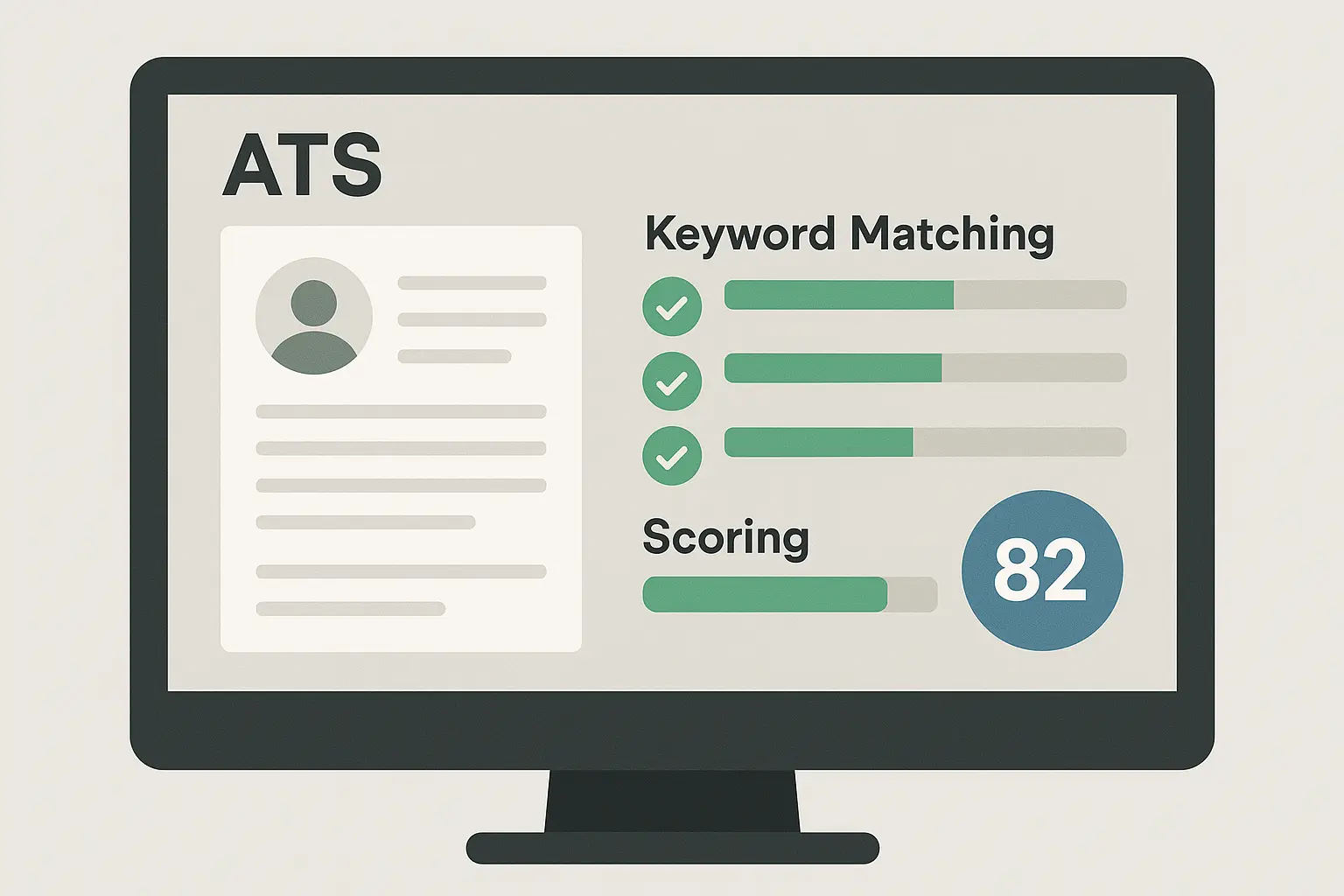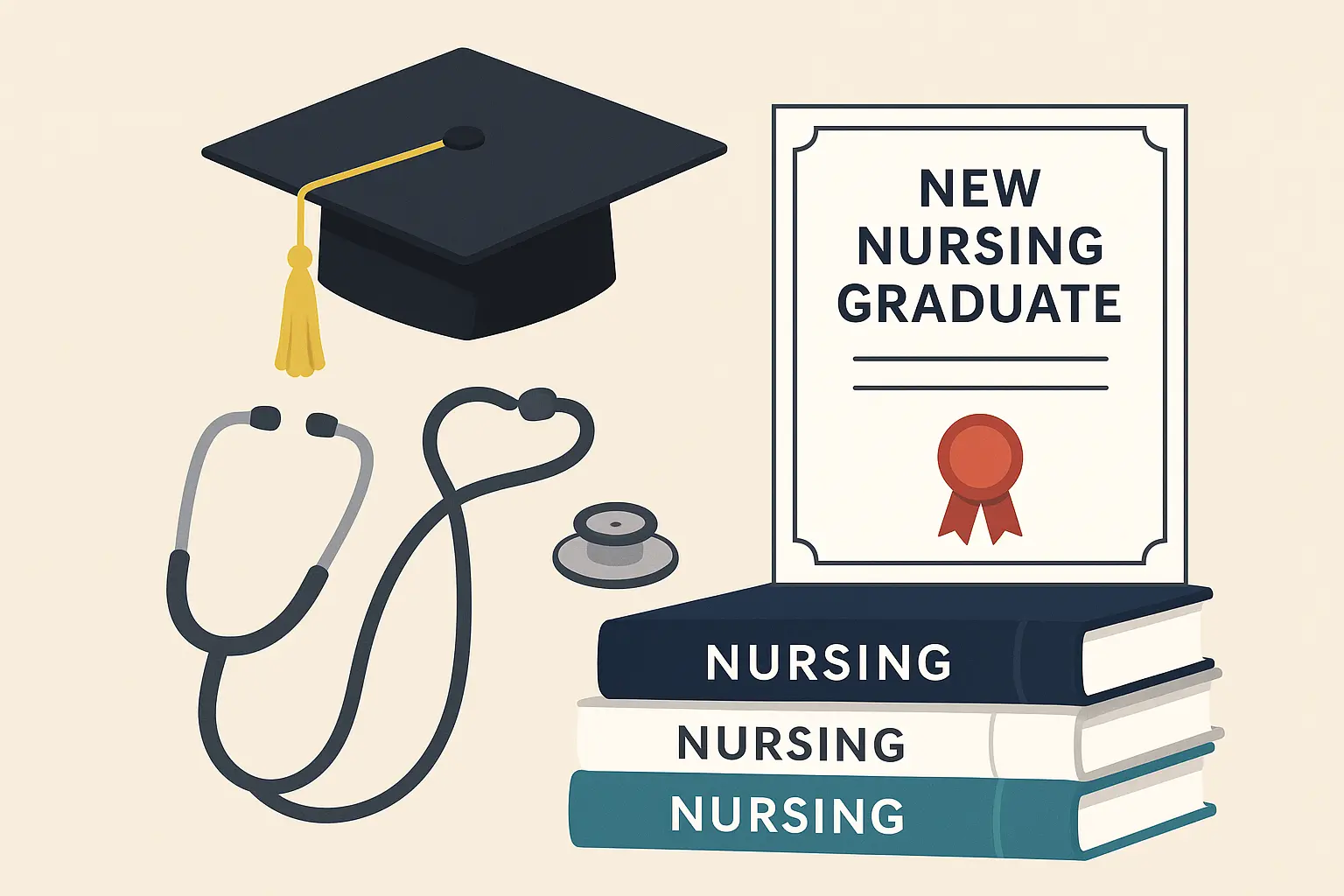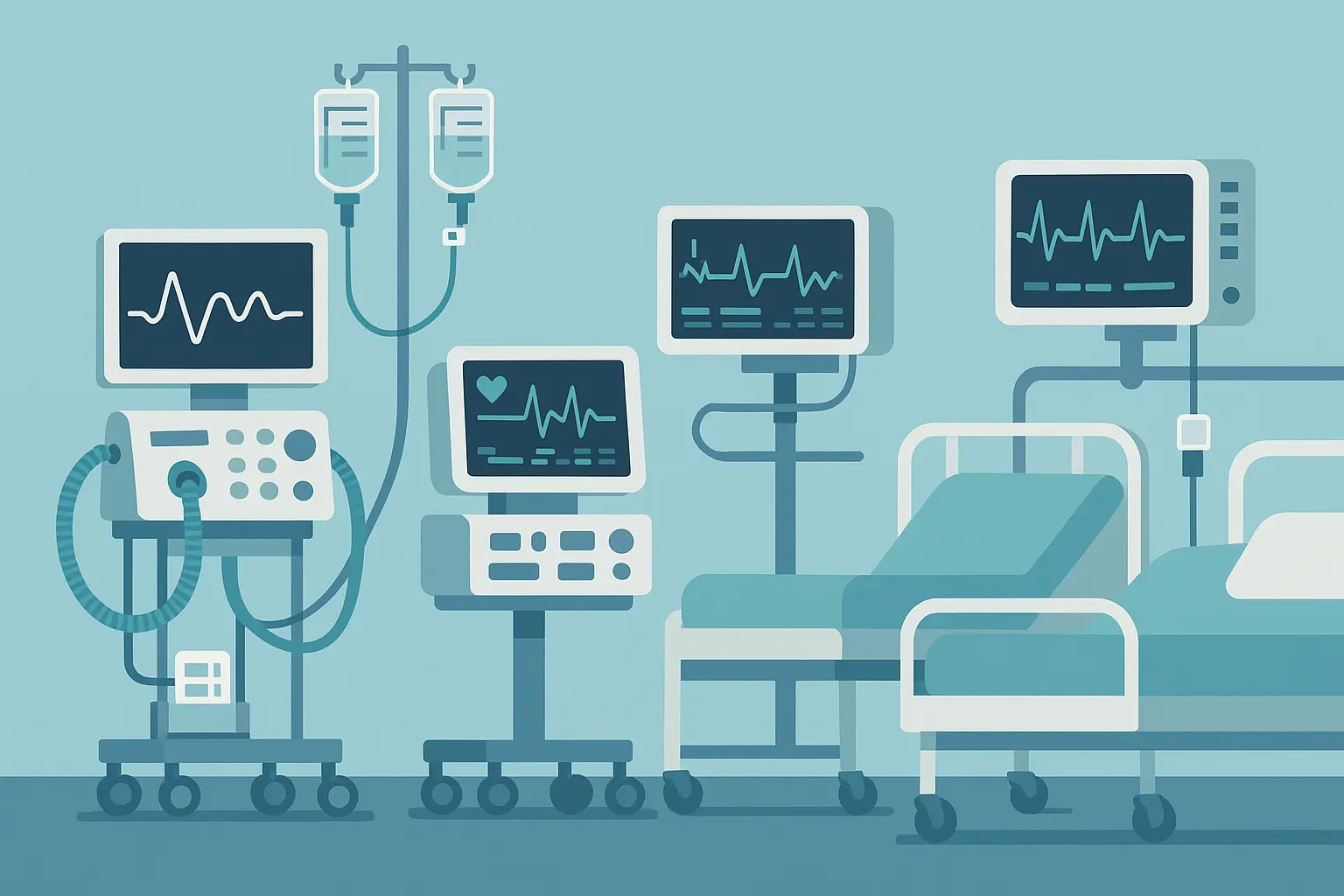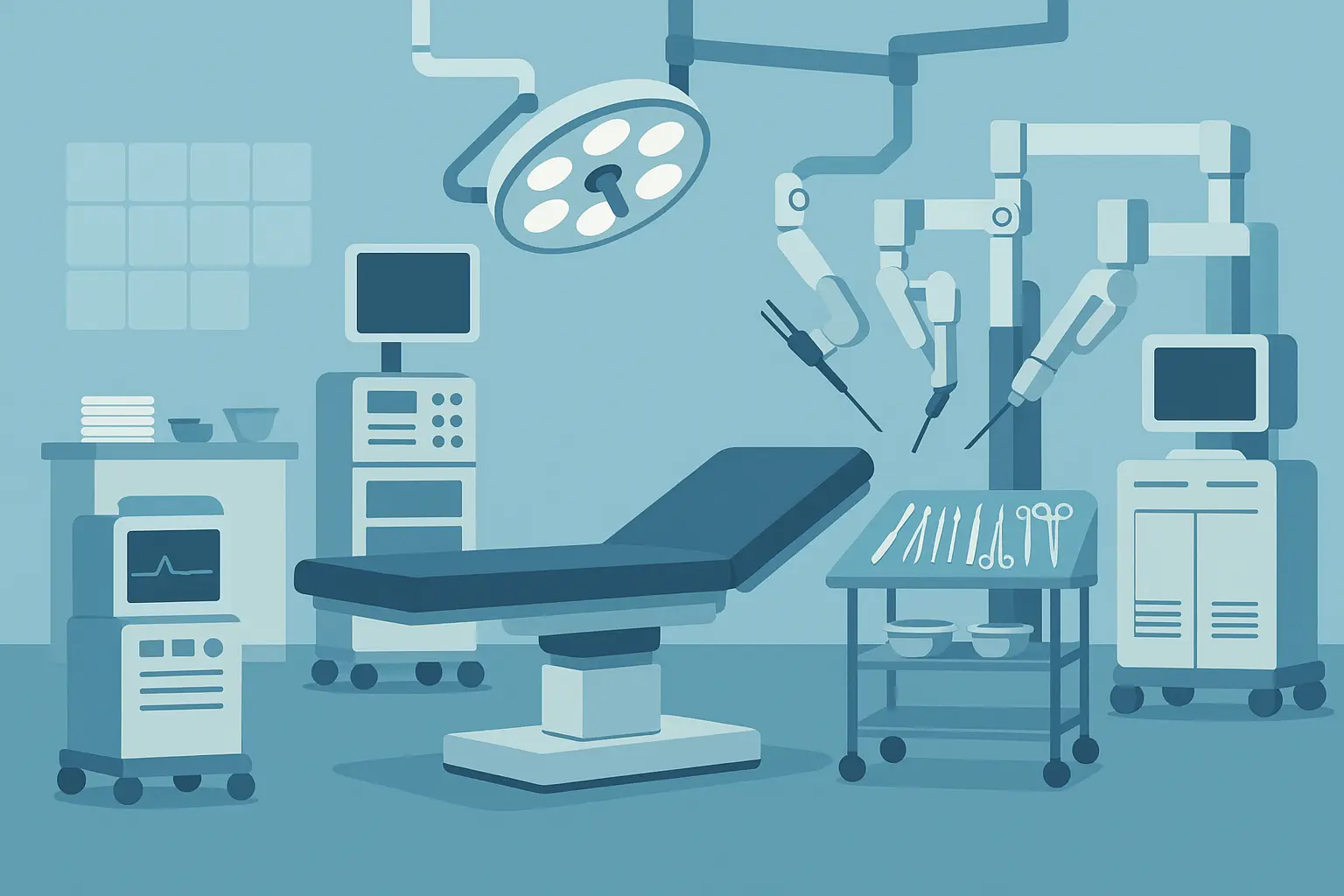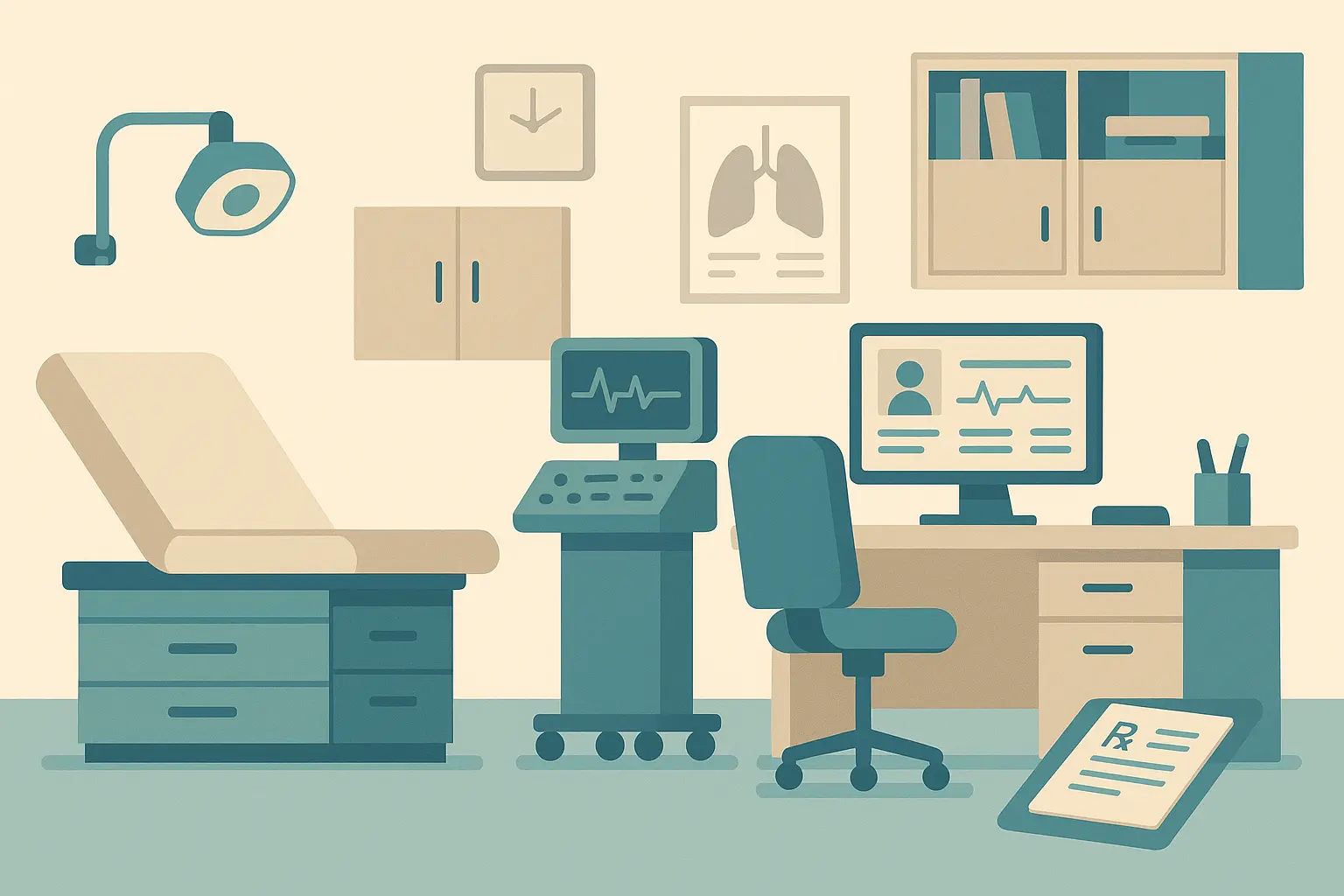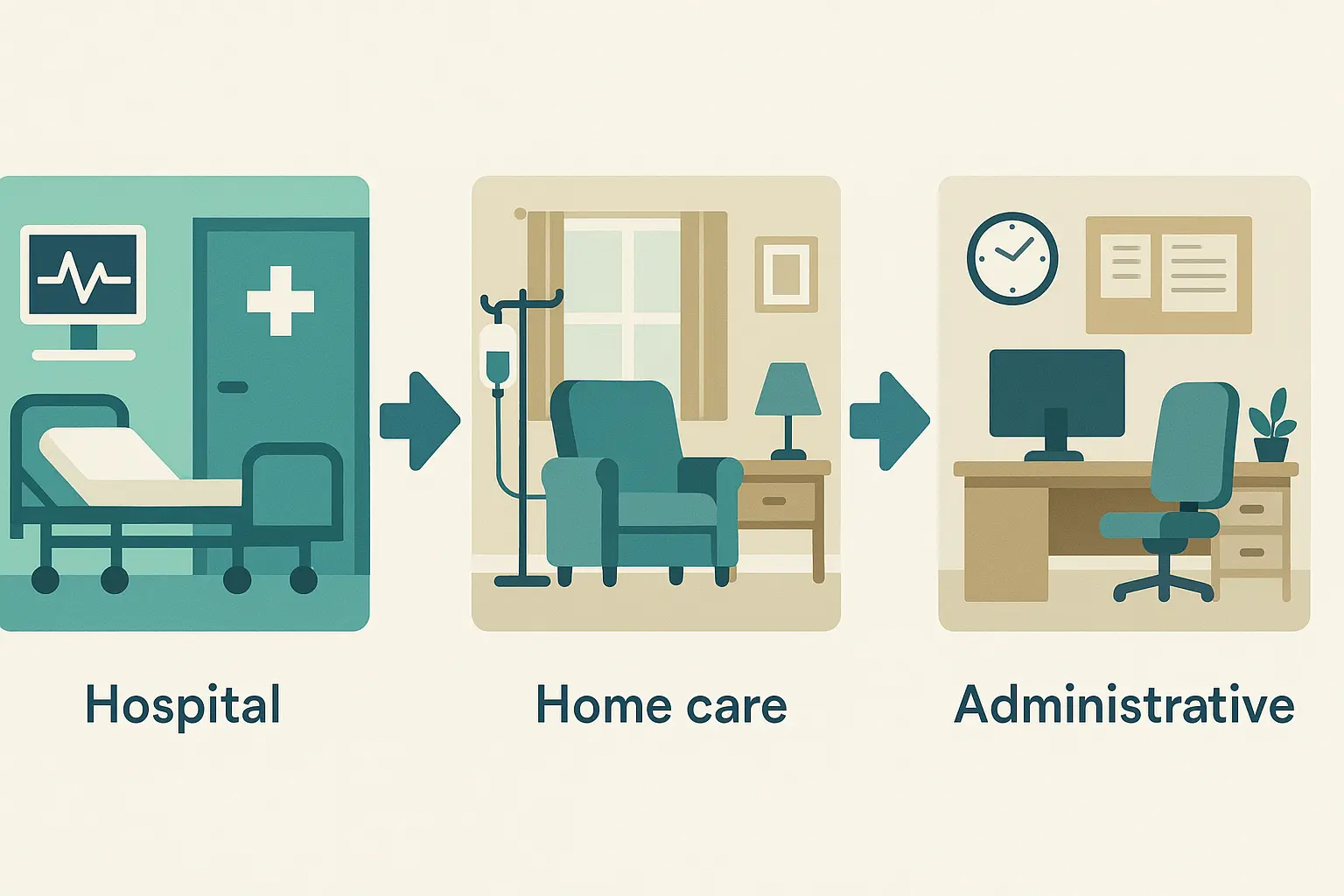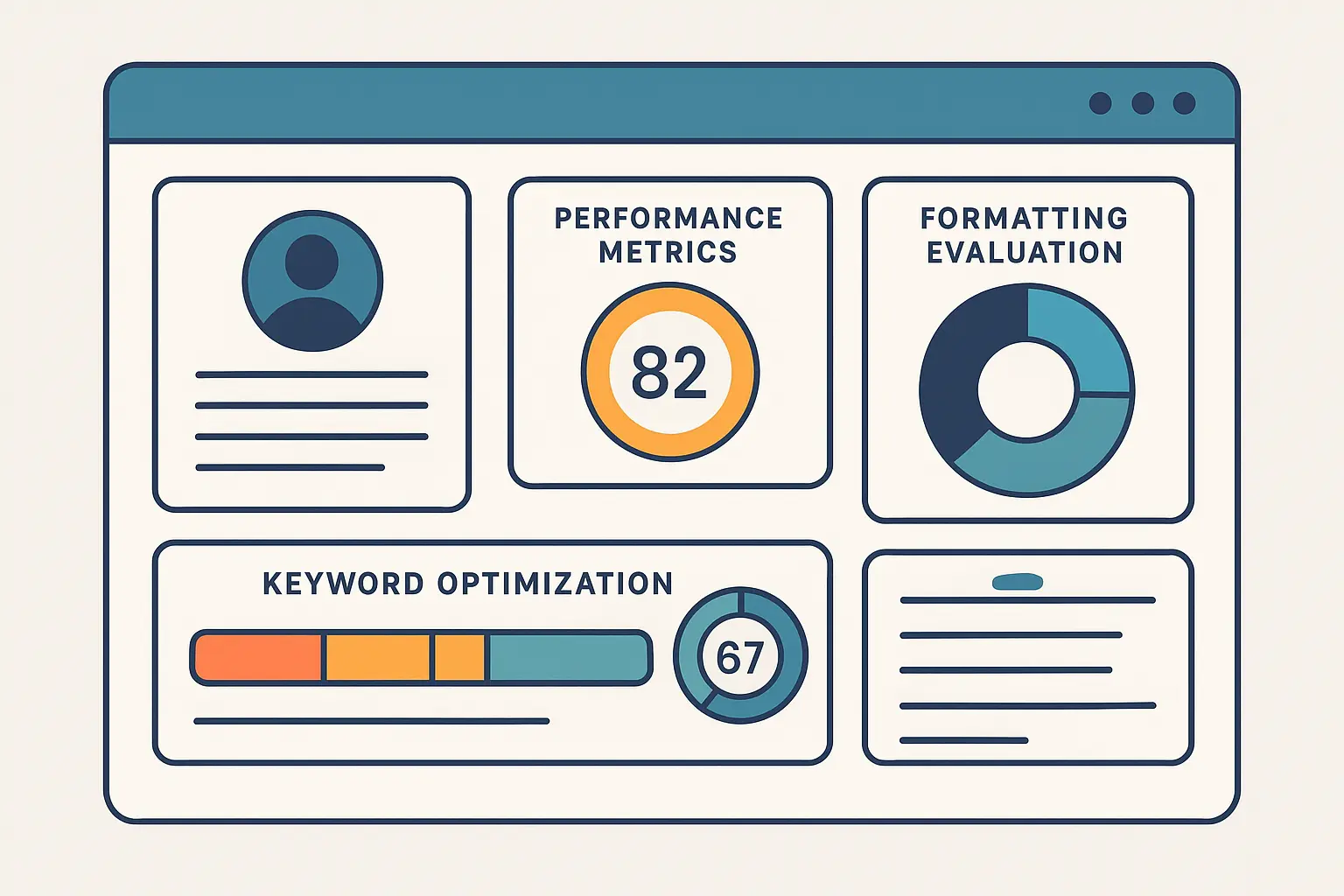25 Top Registered Nurse Resume Examples That Actually Get Interviews

Table of Contents
-
Understanding What Makes RN Resumes Stand Out
-
Essential Criteria for Evaluating Nursing Resume Examples
-
New Graduate RN Resume Examples (5 Examples)
-
Experienced RN Resume Examples (5 Examples)
-
Nursing Leadership and Management Resume Examples (4 Examples)
-
Specialized Clinical Area Resume Examples (4 Examples)
-
Advanced Practice and Specialized Role Resume Examples (4 Examples)
-
Career Transition Resume Examples (3 Examples)
-
Detailed Analysis: What Works and What Doesn’t
-
How Resume Builder IQ Solves Common Nursing Resume Challenges
-
Final Thoughts
TL;DR
-
Modern nursing resumes must pass ATS systems before reaching human reviewers – 55% of companies now use AI recruiting measures
-
Quantifiable achievements matter more than job duties – include patient ratios, satisfaction scores, and clinical outcomes
-
New graduate nurses should emphasize education and clinical rotations while experienced RNs focus on specialized expertise
-
Leadership roles require strategic metrics like budget management, staff retention, and quality improvement outcomes
-
Specialty nursing positions demand specific certifications, equipment knowledge, and population-focused competencies
-
Career transitions need careful positioning to translate experience into new specialty terminology
-
Professional presentation includes clean formatting, strategic keyword placement, and appropriate length (1-2 pages)
Understanding What Makes RN Resumes Stand Out
Let me tell you – getting hired as a nurse today is nothing like it was even five years ago. I’ve watched countless qualified nurses get filtered out before human eyes ever see their applications. The culprit? Those pesky computer systems that decide your fate before any human even sees your resume.
You’re competing against sophisticated algorithms before you even reach a hiring manager. While 94% of hiring professionals say ATS positively influences their goals, 80% of job seekers find the online application process stressful. I get it – sometimes it feels like the system is rigged against us.
Your nursing resume needs to pull double duty. First, it has to contain the right keywords and formatting to get past those computer gatekeepers. Second, it needs to tell a story about your clinical skills and patient care wins that gets hiring managers excited – and they’re spending less than ten seconds looking at each resume.
I’ll never forget when I decided to apply for charge nurse. I spent three hours staring at my old resume thinking, “This makes me sound like a robot who just follows orders.” I had been managing crisis situations, mentoring new grads, and basically running the floor during crazy shifts – but none of that was on paper. After I rewrote it to show what I actually accomplished? Three interviews in two weeks. Sometimes it really is all about how you tell your story.
You know how nursing is all about “show me the evidence”? Well, guess what – hiring managers think the same way. They don’t want to hear that you’re a “dedicated team player.” They want to see that you helped your unit achieve a 95% patient satisfaction score, reduced infection rates, or successfully mentored three new grads through their first year.
Understanding the fundamentals of ATS-friendly resume formatting becomes crucial when developing nursing resume examples that actually reach human reviewers.
|
Resume Element |
Traditional Approach |
Modern ATS-Optimized Approach |
|---|---|---|
|
Skills Section |
Lists basic nursing duties |
Includes specific clinical competencies with keywords |
|
Experience Description |
“Provided patient care” |
“Managed 4-6 patients per shift with 98% medication accuracy” |
|
Certifications |
Listed in education section |
Prominently displayed in dedicated section |
|
Professional Summary |
Generic nursing statement |
Targeted summary with quantified achievements |
|
Formatting |
Creative layouts with graphics |
Clean, simple formatting with standard headings |
Essential Criteria for Evaluating Nursing Resume Examples
Look, I know talking about ATS systems is about as exciting as watching paint dry, but stick with me here. These computer programs are basically the bouncers at the club – and right now, they’re keeping a lot of great nurses outside. The good news? Once you know their rules, you can totally work the system.
ATS Optimization Requirements
Healthcare facilities rely heavily on these systems to manage the flood of applications they get. Your resume format directly impacts whether you’ll advance to human review. Clean, simple layouts with standard section headings perform best.
I thought I was being clever with my colorful resume template – little icons, fancy fonts, the works. I mean, it looked amazing! But after sending out 20+ applications and getting absolutely nothing back, I finally realized the truth: those fancy graphics were basically invisible to the computer screening my resume. It was like showing up to a potluck with a beautiful dish that nobody could actually eat.
Here’s what actually works: include exact terminology from job descriptions, spell out acronyms followed by abbreviations (Basic Life Support (BLS)), and sprinkle clinical skills, equipment names, and certification titles throughout your resume. It’s not about gaming the system – it’s about speaking the same language.
Industry-Specific Content Structure
Nursing resumes need specialized sections that regular professional resumes don’t. Think about it – when was the last time an accountant needed to list their IV certification? Your resume should prominently display licenses and certifications, include detailed clinical skills and competencies, highlight specific units or specialties, and showcase continuing education or professional affiliations.
The structure should flow logically from professional summary through clinical experience to education and certifications. Each section needs to reinforce why you’re perfect for that specific nursing role.
The importance of professional resume formatting becomes even more critical in healthcare settings where nursing resume template selection can determine interview success.
Quantifiable Achievement Focus
Can we be honest for a second? The strongest nursing resume examples ditch the boring job duties and focus on actual numbers that prove you’re awesome. Instead of “provided patient care,” effective resumes specify “managed 4-6 patients per shift with 98% medication administration accuracy” or “achieved patient satisfaction scores of 4.8/5.0.”
I once had a nurse tell me her resume said she “provided excellent patient care.” I asked her, “How do I know it was excellent?” She looked at me like I was crazy. “Because I said so!” That’s when it clicked – we need proof, not promises. Show me those patient satisfaction scores, tell me about the time you caught a medication error, give me something concrete to get excited about.
Healthcare metrics that get hiring managers excited include patient ratios, satisfaction scores, infection rates, length of stay improvements, staff retention numbers, and quality indicator achievements. These concrete numbers show your impact on patient outcomes and organizational success.
Weak Resume Statement: “Responsible for patient care in medical-surgical unit”
Strong Resume Statement: “Delivered comprehensive care to 5-6 medical-surgical patients per shift, achieving 96% patient satisfaction scores and zero medication errors over 18-month period while mentoring 3 new graduate nurses”
Career Level Appropriateness
Different nursing career stages need different approaches. New graduate examples should emphasize education, clinical rotations, academic achievements, and transferable skills from previous experience. Don’t try to oversell limited clinical experience – trust me, hiring managers can spot that from a mile away.
Experienced nurse resumes should focus on progressive responsibilities, specialized expertise, leadership development, and advanced certifications. Executive-level nursing positions require strategic outcomes, budget management, and organizational impact metrics.
New Graduate RN Resume Examples (5 Examples)
Let’s be real – writing your first nursing resume feels impossible. You’re sitting there thinking, “How do I make four clinical rotations sound like I’m ready to save lives?” I get it. I once spent an entire weekend trying to figure out how to describe emptying bedpans in a way that sounded professional. (Spoiler alert: “maintained patient dignity during personal care activities” was my solution.)
Here’s the truth nobody tells new grads: you have more to offer than you think. The secret is smart positioning. New graduate nursing resumes need to balance limited clinical experience with strong educational foundation and potential for growth. These nursing resume samples show how recent BSN and ADN graduates can effectively showcase clinical rotations, academic achievements, relevant certifications, and transferable skills.
1. Recent BSN Graduate – Medical-Surgical Focus
Okay, so Sarah just graduated with her BSN and she’s panicking because she thinks she has “no real experience.” Sound familiar? Here’s how she turned those clinical rotations into something that actually got her hired.
This example shows how new graduates can effectively present their qualifications. The professional summary emphasizes clinical rotation diversity while highlighting specific skills relevant to medical-surgical nursing. Key strengths include the prominent display of GPA (3.8/4.0) – if you’ve got it, flaunt it – specific clinical hours (480), and quantified achievements like 98% medication administration accuracy.
The format prioritizes education and clinical experience while including essential certifications (BLS, ACLS) that many new graduates forget about. The competencies section strategically balances clinical skills, technical know-how, and soft skills that hiring managers actually care about in new graduates.
Contact information follows professional standards with LinkedIn integration, and the overall presentation maintains clean formatting that passes ATS screening while still looking good to human eyes.
2. ADN Graduate – Emergency Department Interest
This example targets high-stress environments by emphasizing trauma care experience, emergency response training, and ability to perform under pressure. The resume highlights clinical rotations in emergency settings, showcases relevant certifications like PALS or trauma nursing, and demonstrates quick decision-making capabilities.
Key differentiators include specific emergency procedures performed during rotations, any volunteer experience with emergency services, and emphasis on critical thinking skills developed through challenging clinical scenarios.
3. Second-Career RN – Previous Healthcare Experience
Career changers bring valuable experience that needs smart positioning. This example leverages prior roles as CNA, medical assistant, or other healthcare positions while emphasizing the advanced knowledge gained through nursing education.
The resume demonstrates healthcare system familiarity, patient care foundation, and professional growth trajectory. It carefully balances previous experience with new nursing competencies without downplaying the significance of completing nursing school.
For professionals transitioning careers, understanding how to create a resume with no experience in the target field while leveraging transferable skills becomes crucial for new grad nursing resume success.
4. New Grad with Internship Experience
Competitive internship or externship programs provide significant advantages for new graduates. This example showcases structured learning experiences, early professional mentorship, and demonstrated commitment to specific specialty areas.
The resume emphasizes hands-on experience gained through internships, positive feedback from preceptors, and any special projects or initiatives completed during the program. It positions the candidate as having more practical experience than typical new graduates.
5. Honor Society New Graduate
Academic excellence and leadership involvement distinguish this example. The resume highlights membership in Sigma Theta Tau or other nursing honor societies, leadership roles in student organizations, research projects, and community service initiatives.
This approach demonstrates professional commitment, scholarly achievement, and leadership potential that appeals to Magnet hospitals and academic medical centers seeking well-rounded candidates.
|
New Graduate Resume Section |
Essential Elements |
Common Mistakes to Avoid |
|---|---|---|
|
Professional Summary |
Clinical rotation hours, GPA (if 3.5+), key certifications |
Overstating experience, generic statements |
|
Clinical Experience |
Specific units, patient populations, skills demonstrated |
Listing rotations without context or achievements |
|
Education |
Degree, school, honors, relevant coursework |
Burying important academic achievements |
|
Certifications |
BLS, ACLS, specialty certs, license number |
Forgetting to include expiration dates |
|
Skills |
Clinical competencies, technology, languages |
Generic soft skills without nursing context |
Experienced RN Resume Examples (5 Examples)
After working in nursing for several years, your game completely changes. You’re no longer selling potential – you’re showcasing proven results. I’ve seen too many experienced nurses undersell themselves by focusing on job duties instead of their actual wins.
Here’s what I wish someone had told me when I was starting out: your experience is gold, but only if you present it right. Experienced registered nurse resumes showcase progressive clinical expertise, specialized certifications, leadership development, and measurable patient care outcomes. These rn resume examples demonstrate how nurses with 3-10+ years of experience can effectively highlight their clinical competencies, quality improvement initiatives, mentorship capabilities, and specialty knowledge.
6. ICU Nurse with 5+ Years Experience
This detailed example shows how experienced critical care nurses should present their expertise. The professional summary immediately establishes credibility with CCRN certification and quantified achievements like 15% reduction in hospital-acquired infections. The experience section demonstrates career progression from staff nurse to senior nurse with increasing responsibilities.
Specific accomplishments include precepting 12+ new graduates with 95% retention rate, participating in rapid response teams, and managing complex patient cases requiring advanced life support. The certifications section prominently displays specialty credentials that ICU hiring managers prioritize.
Technical competencies encompass advanced cardiac life support, mechanical ventilation, hemodynamic monitoring, and specialized equipment operation. Professional affiliations with AACN demonstrate ongoing professional development and specialty commitment.
7. Charge Nurse with Leadership Experience
Leadership-focused nursing resumes emphasize staff management, scheduling coordination, quality improvement initiatives, and budget oversight while maintaining clinical excellence. This example showcases supervisory experience, conflict resolution skills, and ability to mentor junior staff.
Key achievements include staff development programs, improved unit metrics, successful Joint Commission surveys, and implementation of evidence-based practice changes . The resume balances administrative responsibilities with continued clinical competency.
8. Float Pool Nurse – Multi-Unit Experience
Adaptability and broad clinical knowledge define successful float pool nurses. This example demonstrates competency across multiple specialties, quick learning ability, and flexibility in various clinical environments.
The resume highlights experience in medical-surgical, telemetry, orthopedic, and other units while showcasing ability to quickly orient to new systems, work with diverse patient populations, and maintain high performance standards regardless of assignment.
9. Travel Nurse with Diverse Experience
Travel nursing requires exceptional adaptability and clinical competence. This example showcases experience across multiple facilities, different electronic health record systems, and various patient populations while maintaining consistent quality outcomes.
Key strengths include rapid orientation capabilities, cultural competency, independent practice skills, and ability to quickly integrate into new teams. The resume emphasizes flexibility while demonstrating clinical expertise.
10. Specialty Certified RN (PCCN, CEN, etc.)
Specialty certifications distinguish experienced nurses in competitive markets. This example emphasizes advanced training, specialized patient populations, and expertise in specific clinical areas like progressive care, emergency nursing, or oncology.
The resume showcases continuing education, specialty conference attendance, and leadership roles within professional organizations. It demonstrates commitment to specialty practice and ongoing professional development.
Before: “Worked as ICU nurse for 5 years providing patient care”
After: “Delivered critical care to 2-3 high-acuity patients per shift in 32-bed ICU, achieving 18% reduction in central line-associated bloodstream infections through evidence-based practice implementation. Precepted 12 new graduates with 95% retention rate and served on rapid response team with average 3-minute response time.”
Nursing Leadership and Management Resume Examples (4 Examples)
Moving into nursing leadership requires a complete mindset shift in how you present yourself. I remember when I first applied for a nurse manager position – my resume focused too heavily on clinical skills and barely mentioned the budget oversight and staff development work I’d been doing. Don’t make my mistake.
Nursing leadership resumes require strategic focus on operational outcomes, staff development, budget management, and organizational impact. These rn resume examples demonstrate how nurse managers, directors, clinical specialists, and educators can effectively showcase their executive capabilities, quality improvement initiatives, team leadership, and contributions to organizational success.
11. Nurse Manager – Medical-Surgical Unit
This executive-level example demonstrates comprehensive leadership capabilities through quantified operational outcomes. The professional summary establishes credibility with NEA-BC certification and Master’s degree while highlighting key achievements like 23% staff turnover reduction and 95th percentile patient satisfaction scores.
The experience section showcases progressive leadership development from assistant manager to full manager role. Specific accomplishments include managing 65 FTE staff, overseeing $2.3M budget, and leading quality improvement initiatives resulting in 30% reduction in patient falls.
Educational credentials include Master’s in Nursing Administration, supporting the leadership trajectory. Certifications emphasize executive competency with NEA-BC and CNML credentials that healthcare organizations value in management roles.
12. Director of Nursing
Executive-level nursing positions require strategic thinking and organizational leadership. This example demonstrates multi-department oversight, strategic planning capabilities, and ability to drive organizational change while maintaining quality patient care standards.
Key achievements include successful accreditation surveys, implementation of system-wide initiatives, and leadership during organizational transitions. The resume emphasizes both clinical background and executive development.
13. Clinical Nurse Specialist
Advanced practice roles focusing on clinical expertise, research, and policy development require specialized positioning. This example showcases evidence-based practice implementation, clinical research participation, and specialty knowledge in specific patient populations.
The resume highlights advanced education, research publications, policy development contributions, and clinical consultation expertise. It demonstrates the unique value CNS roles bring to healthcare organizations.
14. Nurse Educator – Clinical or Academic
Teaching and mentorship roles require different emphasis than direct patient care positions. This example showcases curriculum development, student evaluation, clinical instruction, and contributions to nursing education advancement.
Key strengths include innovative teaching methods, student success outcomes, continuing education program development, and professional development contributions to nursing staff.
Specialized Clinical Area Resume Examples (4 Examples)
Specialty nursing positions demand deep clinical expertise that goes way beyond general medical-surgical experience. When I transitioned from general nursing to the OR, I quickly realized my resume needed to speak a completely different language – one filled with surgical terminology, sterile technique protocols, and procedure-specific competencies.
Trust me, you’re more qualified than you think. Specialized nursing roles require deep clinical expertise, specific certifications, and demonstrated competency with specialized patient populations and equipment. These examples show how nurses in operating rooms, pediatric ICUs, labor and delivery, and oncology can effectively highlight their specialized nursing skills for resume, patient outcomes, family-centered care approaches, and technical proficiencies.
15. Operating Room Nurse
This detailed example showcases the unique competencies required for perioperative nursing. The professional summary immediately establishes CNOR certification and emphasizes infection control excellence with zero surgical site infections over 24 months. The experience section demonstrates progression from staff nurse to senior OR nurse with increasing responsibilities.
Specialized skills encompass multiple surgical specialties including cardiac, thoracic, orthopedic, and robotic procedures. Technical competencies include Da Vinci Surgical System operation, advanced instrumentation knowledge, and sterile technique mastery.
The resume quantifies impact through procedure volumes (1,200+ procedures with 100% sterile technique compliance), training contributions (6 new OR nurses trained), and quality outcomes (zero infections). Professional development includes AORN certification and ongoing specialty education.
16. Pediatric ICU Nurse
Pediatric critical care requires specialized knowledge of age-specific physiology, family-centered care, and pediatric emergency response. This example emphasizes experience with critically ill children, family support skills, and competency with pediatric-specific equipment and protocols.
Key differentiators include pediatric advanced life support certification, experience with congenital heart disease or other complex pediatric conditions, and demonstrated ability to communicate effectively with families during crisis situations.
17. Labor & Delivery Nurse
Obstetric nursing combines routine care with emergency response capabilities. This example showcases fetal monitoring expertise, labor support skills, emergency cesarean assistance, and newborn care competencies.
The resume emphasizes patient education, family support during childbirth, and ability to manage both low-risk and high-risk deliveries. Certifications include electronic fetal monitoring and neonatal resuscitation.
18. Oncology Nurse
Cancer care requires specialized knowledge of chemotherapy administration, symptom management, and end-of-life care. This example demonstrates competency with various cancer treatments, patient education skills, and ability to provide compassionate care during difficult journeys.
Key strengths include chemotherapy certification, pain management expertise, clinical trial coordination experience, and demonstrated ability to support patients and families through cancer treatment.
Advanced Practice and Specialized Role Resume Examples (4 Examples)
Advanced practice nursing represents a completely different level of autonomous healthcare delivery. When I first reviewed nurse practitioner resumes, I was struck by how many failed to distinguish their advanced practice capabilities from traditional RN roles. Your registered nurse resume must clearly show your prescriptive authority, autonomous decision-making, and population health management skills.
Advanced practice nursing roles require distinct positioning that emphasizes autonomous practice, prescriptive authority, specialized expertise, and patient outcomes management. These nursing resume examples demonstrate how nurse practitioners, clinical research nurses, infection control specialists, and case managers can effectively showcase their advanced competencies, regulatory knowledge, and unique contributions to healthcare delivery.
19. Nurse Practitioner
This comprehensive example demonstrates the autonomous practice capabilities that distinguish nurse practitioners from registered nurses. The professional summary emphasizes board certification, patient panel size (1,200+ patients), and measurable outcomes like 28% reduction in emergency department visits through proactive care management.
The experience section clearly separates advanced practice roles from previous RN experience. Key achievements include high patient satisfaction scores (96%), comprehensive primary care delivery across the lifespan, and precepting responsibilities for NP students.
Educational credentials prominently feature Master’s degree and board certification. Licensing information includes both NP license and DEA registration, establishing prescriptive authority. Clinical competencies encompass comprehensive assessment, chronic disease management, and preventive care delivery.
20. Clinical Research Nurse
Research nursing requires specialized knowledge of clinical trial protocols, regulatory compliance, and data integrity. This example emphasizes experience with various study phases, patient recruitment and retention, and collaboration with principal investigators.
Key competencies include Good Clinical Practice (GCP) certification, protocol development, adverse event reporting, and regulatory submission preparation. The resume showcases experience with different therapeutic areas and study designs.
21. Infection Control Nurse
Infection prevention requires epidemiological knowledge, surveillance expertise, and policy development skills. This example demonstrates experience with outbreak investigation, surveillance program management, and staff education on infection control practices.
The resume emphasizes certifications in infection control (CIC), experience with regulatory compliance, and measurable outcomes like reduced healthcare-associated infection rates.
22. Case Management Nurse
Care coordination roles require different skills than direct patient care. This example showcases discharge planning expertise, insurance navigation, interdisciplinary collaboration, and patient advocacy across the care continuum.
Key strengths include case management certification (CCM), experience with various payer systems, and demonstrated ability to reduce length of stay while maintaining quality outcomes.
|
Advanced Practice Role |
Key Differentiators |
Essential Credentials |
|---|---|---|
|
Nurse Practitioner |
Autonomous practice, prescriptive authority, patient outcomes |
Master’s degree, board certification, DEA license |
|
Clinical Research Nurse |
Protocol expertise, regulatory compliance, data management |
GCP certification, research experience, clinical trial knowledge |
|
Infection Control Nurse |
Epidemiology knowledge, surveillance systems, policy development |
CIC certification, infection control experience |
|
Case Management Nurse |
Care coordination, insurance navigation, discharge planning |
CCM certification, utilization review experience |
Career Transition Resume Examples (3 Examples)
Switching nursing specialties can feel like you’re starting from scratch – trust me, I’ve been there. You’re looking at job postings thinking, “I have no idea what half these acronyms mean!” But here’s what I wish someone had told me: your nursing foundation is solid gold. You just need to translate it into the new specialty’s language.
Career transitions in nursing don’t have to feel like starting over. The key lies in smart repositioning rather than complete reinvention. These nursing resume examples show how nurses can successfully navigate moves from hospital to community settings, clinical to administrative roles, and military to civilian healthcare while maintaining credibility and showcasing relevant competencies.
23. Hospital to Home Health Transition
Moving from acute care to community-based nursing requires emphasizing independence, patient education skills, and family involvement capabilities. This example showcases adaptability from structured hospital environments to autonomous home care practice.
Key strengths include comprehensive assessment skills, patient teaching expertise, care coordination across multiple providers, and ability to work independently while maintaining safety standards. The resume emphasizes cultural competency and communication skills essential for home health success.
24. Clinical to Non-Clinical Role Transition
Nurses transitioning to healthcare administration, quality improvement, or healthcare technology need to highlight transferable skills while maintaining clinical credibility. This example demonstrates analytical thinking, project management, and leadership capabilities developed through clinical practice.
The resume emphasizes process improvement experience, data analysis skills, regulatory knowledge, and ability to bridge clinical and administrative perspectives. It positions clinical experience as valuable foundation for non-clinical roles.
Understanding how to effectively show promotions on a resume becomes crucial when transitioning between different healthcare roles and nursing resume examples.
25. Military to Civilian Nursing Transition
Military to civilian nursing transition is like learning to speak a whole new language. In the military, you “maintained medical equipment inventory.” In civilian nursing, you “managed supply chain logistics to ensure optimal patient care delivery.” Same job, fancier words. It’s like putting your work experience in a tuxedo.
Military healthcare experience requires translation into civilian terminology while emphasizing leadership, trauma care expertise, and ability to perform under pressure. This example showcases combat medical experience, leadership development, and adaptability to diverse environments.
Key differentiators include emergency response training, mass casualty experience, leadership of medical teams, and ability to maintain performance standards in challenging conditions. The resume translates military ranks and responsibilities into civilian healthcare language.
Military Experience Translation:
Before: “Served as 68W Combat Medic, responsible for medical care in forward operating base”
After: “Delivered emergency medical care in high-stress environments, managing trauma cases with 98% patient stabilization rate while supervising team of 8 medical personnel and maintaining medical supply inventory for 200+ personnel”
Detailed Analysis: What Works and What Doesn’t
After analyzing hundreds of nursing applications, clear patterns emerge between resumes that generate interviews and those that get rejected. Here’s what I’ve learned from reviewing countless applications – and trust me, some patterns will surprise you.
Successful nursing resumes demonstrate strong ATS optimization through standard formatting and strategic keyword usage, industry-specific structure with prominent certifications and clinical competencies, quantifiable achievements that showcase patient outcomes and organizational impact, appropriate career level positioning, clear specialization alignment, and professional presentation that facilitates quick scanning by busy healthcare hiring managers.
ATS Performance Assessment
The strongest examples consistently use standard section headings, incorporate relevant clinical keywords, and maintain clean formatting that parsing systems can read effectively. Examples like the New Graduate BSN and ICU Nurse demonstrate superior ATS optimization through strategic keyword placement and quantified achievements.
Ever feel like your resume is getting lost in a black hole? That’s probably because it is. Weaker examples often suffer from creative formatting that confuses ATS systems, missing critical nursing terminology, or inconsistent formatting that reduces parsing accuracy. Healthcare-specific acronyms and certifications must be included to pass initial screening.
Content Structure Evaluation
Excellent examples like the Nurse Manager and Family NP demonstrate perfect healthcare-specific structure with clear separation between clinical experience, leadership responsibilities, and advanced practice capabilities. They prominently display certifications and include patient outcome metrics.
The importance of selecting the right resume format becomes critical when developing an rn resume template that showcases nursing competencies effectively.
Areas for improvement often involve burying important certifications in education sections rather than highlighting them prominently, or failing to emphasize nursing-specific competencies that differentiate candidates from other healthcare professionals.
Achievement Quantification Analysis
High-impact examples consistently include healthcare-specific metrics like infection rates, patient satisfaction scores, staff retention numbers, and quality improvement outcomes. The ICU Nurse example excels with “reduced CLABSI rate by 18%” and “precepted 12+ new graduates with 95% retention.”
You know that sinking feeling when you realize you’ve been describing your job duties instead of bragging about your wins? Missing opportunities often involve failing to quantify patient outcomes, cost savings, efficiency improvements, or training contributions that demonstrate measurable impact on healthcare delivery.
Career Appropriateness Context
Well-matched examples appropriately balance experience level with claimed responsibilities. New graduate examples emphasize education and foundational skills without overstating limited experience, while leadership examples focus on strategic outcomes and organizational impact.
Common misalignments include new graduates claiming extensive experience they don’t possess, or experienced nurses failing to demonstrate career progression and increasing responsibilities over time.
How Resume Builder IQ Solves Common Nursing Resume Challenges
We’ve all been there – hitting “submit” on a job application and hearing… crickets. Healthcare professionals face unique resume challenges that generic tools can’t address effectively. You’re dealing with complex clinical terminology, specialty certifications, patient outcome metrics, and ATS systems specifically configured for healthcare environments.
Resume Builder IQ addresses critical nursing resume challenges through AI-powered healthcare precision that understands nursing terminology and competencies, industry-specific templates optimized for ATS systems, nursing skills optimization with appropriate keywords, career level customization for different experience stages, time-saving efficiency for busy healthcare professionals, and comprehensive application support including cover letter integration.
AI-Powered Healthcare Precision understands the nuances of nursing practice. Instead of struggling to translate clinical experience into resume language, you get intelligent suggestions that speak directly to healthcare hiring managers. The system recognizes the difference between ICU and medical-surgical experience, understands certification hierarchies, and suggests appropriate clinical competencies.
Industry-Specific Templates are optimized for healthcare ATS systems while maintaining the professional appearance that nursing employers expect. These templates properly format nursing competencies, clinical experience sections, and certification displays that generic resume builders often mishandle.
Our platform goes beyond basic free nursing resume templates by providing nursing cover letter examples that complement your resume for a complete application package.
Nursing Skills Optimization helps you highlight critical competencies like patient assessment, medication administration, and clinical decision-making with the right keywords and context. The system understands which skills matter most for different nursing specialties and suggests appropriate terminology.
Career Level Customization adapts to your nursing career stage. Whether you’re a new graduate emphasizing clinical rotations or an experienced nurse manager showcasing budget oversight, the platform provides appropriate guidance for your experience level.
Time-Saving Efficiency matters when you’re working 12-hour shifts and studying for certifications. Create professional, tailored nursing resumes in minutes rather than hours, allowing more time for patient care and professional development.
The nursing profession continues evolving with increasing specialization, advancing technology, and growing emphasis on evidence-based outcomes. Your resume must evolve too, showcasing clinical competence and your ability to contribute to healthcare excellence, patient safety, and organizational success.
Resume Builder IQ Optimization Example:
A travel nurse inputs “worked in different hospitals” and the AI suggests: “Demonstrated clinical adaptability across 6 healthcare systems, maintaining 95% patient satisfaction scores while rapidly integrating with diverse teams and mastering 4 different EMR systems including Epic, Cerner, and Meditech.”
Final Thoughts
The nursing profession demands precision, attention to detail, and clear communication – qualities that must shine through in every resume you submit. These 25 examples show that successful nursing resumes require more than listing experience; they need smart positioning, actual numbers that prove you’re awesome, and industry-specific optimization that speaks directly to healthcare hiring managers.
Your resume serves as the first impression in an increasingly competitive healthcare market. With ATS systems screening applications and hiring managers spending seconds reviewing each document, every word must work strategically to advance your candidacy. The examples analyzed show that nurses who quantify their impact, align their experience with target roles, and present their qualifications professionally consistently outperform those who rely on generic approaches.
Here’s the bottom line: you didn’t become a nurse to write resumes. You became a nurse to help people. But sometimes, to get the chance to help the patients you’re meant to serve, you need to help yourself first. A great resume isn’t about bragging – it’s about making sure the right people know what you’re capable of. And trust me, you’re capable of amazing things.
Remember that your nursing career represents a unique combination of clinical expertise, patient advocacy, and professional growth. Whether you’re a new graduate launching your career or an experienced nurse pursuing leadership opportunities, your resume should reflect both your clinical competence and your potential to contribute to healthcare excellence. The investment you make in crafting a strategic, well-optimized resume pays dividends throughout your nursing career by opening doors to opportunities that align with your professional goals and personal values.
[Keywords to Include:]
[Content Summary:]
